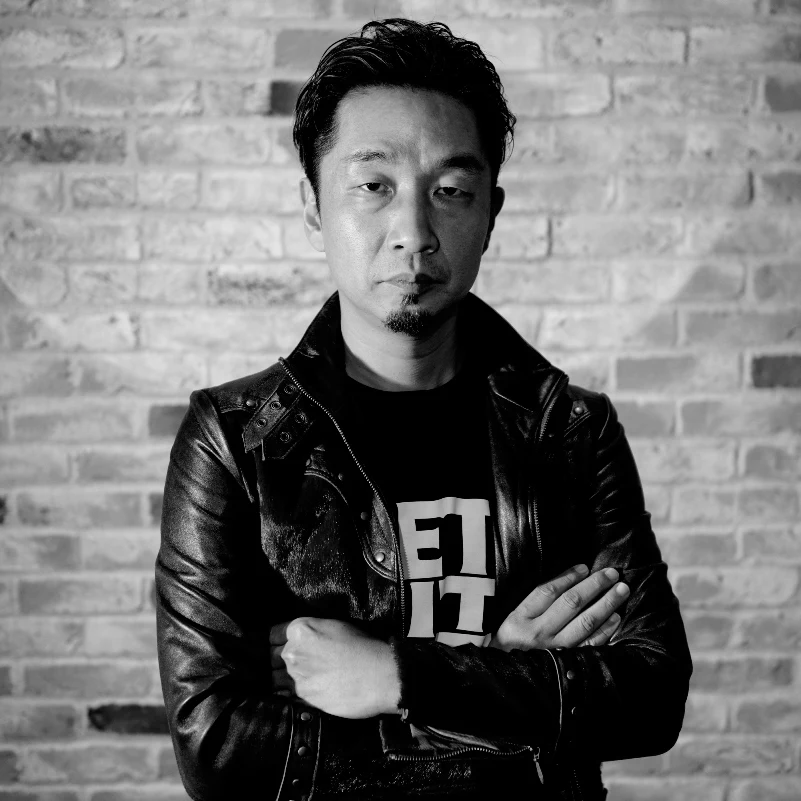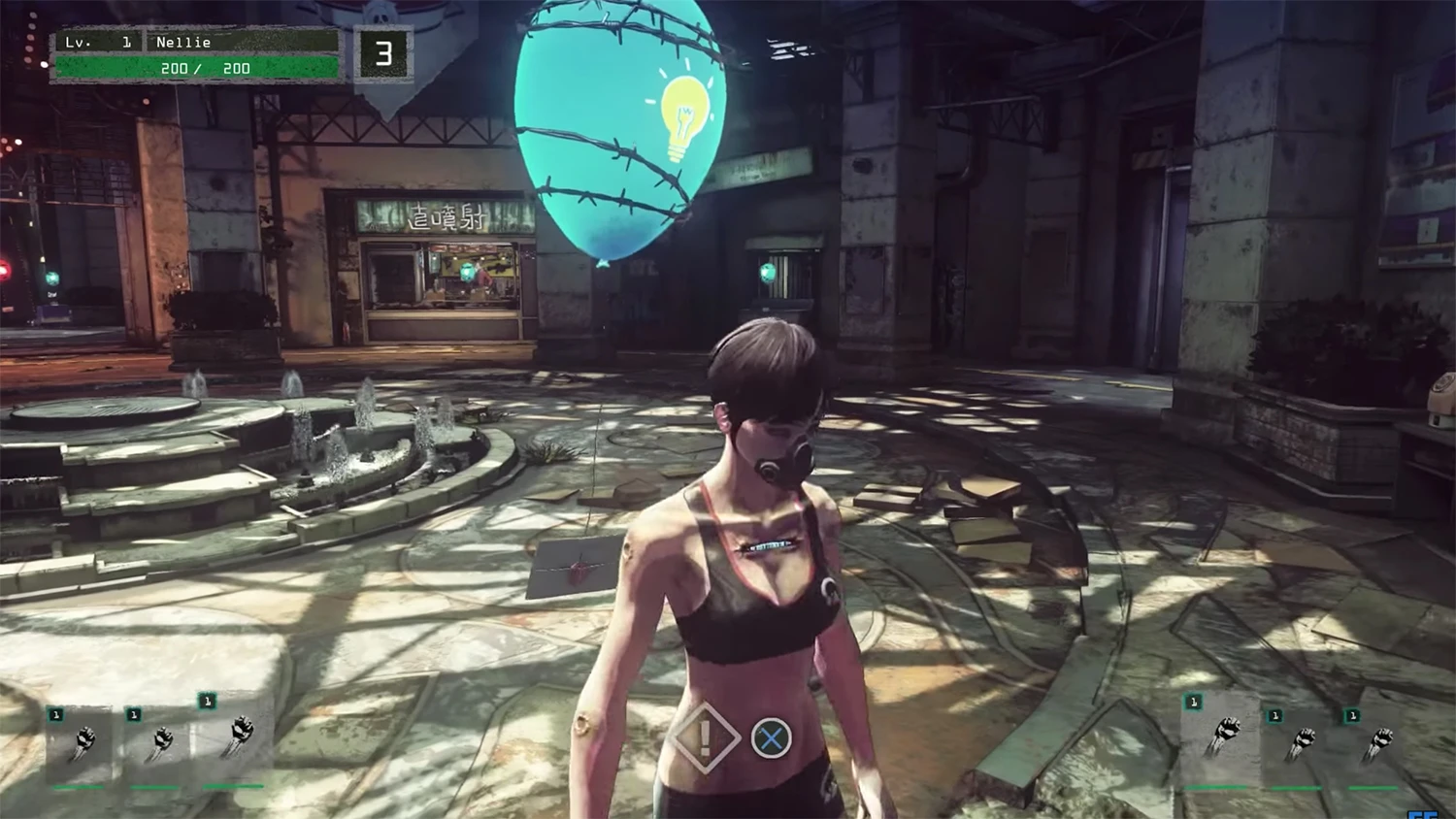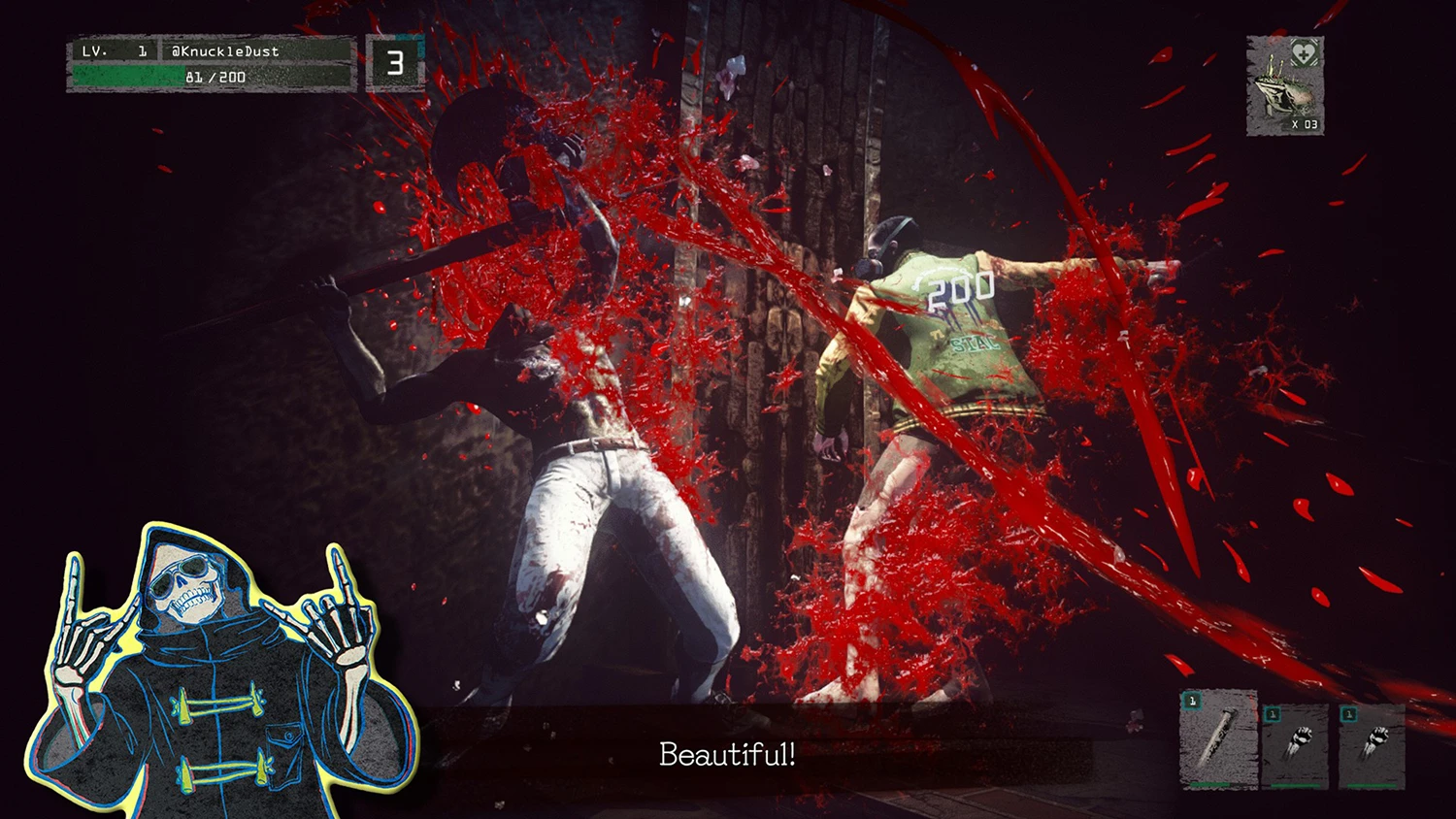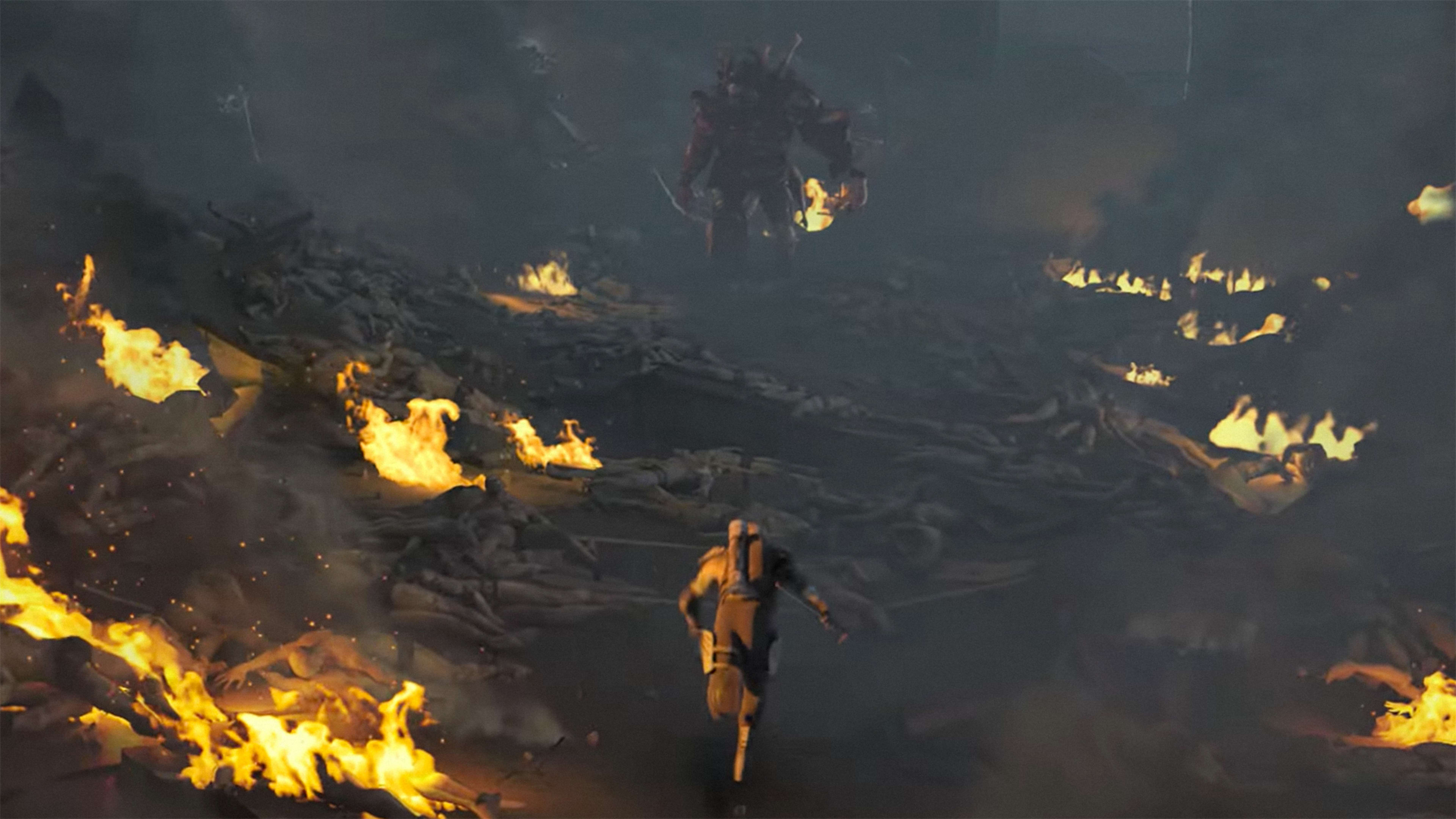Let It Die is a game about a mysterious tower in post-apocalyptic Tokyo, where players control an emotionless, reanimated corpse, and are guided by a cheery, skateboard-riding grim reaper named Uncle Death.
Strange as that sounds, the story behind Let It Die‘s soundtrack is even more unusual. When players need a break from battling rabid humans and berserk androids, they catch an elevator to their subterranean home base, where a radio station blasts some of Japan’s best death metal, synth-pop, techno, and alt-rock. These are real Japanese bands, more than 100 of which wrote original songs for the game.
It’s a remarkable achievement given the circumstances. While Western record labels have licensed their music to video games for years, games like Forza Horizon 3 and Grand Theft Auto V merely recycle tracks that already exist. Asking established bands to create new music for a game is rarer. Getting more than 100 bands on board for such a project is unheard of. And in Japan, where the music and video game industries seldom collaborate at all, the very idea seems preposterous.
And yet, a game with a weird premise and little mainstream appeal managed to pull it off.
Discovery Engine
Akira Yamaoka, Let It Die‘s musical director, is a veteran of Japan’s video game business, and gained renown composing music for the Silent Hill series of horror games in the late 1990s and early aughts. In 2010, Yamaoka went indie, leaving Japanese mega-publisher Konami for Grasshopper Manufacture, a smaller studio putting out offbeat titles like Shadows of the Damned and Lollipop Chainsaw.

For Let It Die, Yamaoka didn’t want to create another conventional soundtrack, based solely on the ideas in his head. Instead, he wanted the world to hear some of his favorite Japanese bands and saw the game as an opportunity.
“Players usually listen and grow attached to the soundtrack and music while they are immersed in the video game, following the story and engaging in the game world,” Yamaoka says in an email interview, via a translator. “It’s with this mindset that I think players could see this as a platform to discover new music they have never heard of before.”
About four years ago, Yamaoka started reaching out to Japanese artists that he admired. In many cases, he’d never met the ones that he wanted to include, and had no established contacts to work with, so he spent a lot of time looking up contact information on those bands’ websites and sending cold pitches via email. In total, he contacted roughly 500 artists, trying to sell them on the idea of more international exposure.
“I’m personally a fan of all these bands, and I listened to them before I even thought about working with them,” Yamaoka says. “I hope everyone agrees, they’re all very talented.”

One Hundred Deaths
For artists that were interested, Yamaoka would set up a meeting to explain the game’s concept and setting. But he only provided the artists with one instruction: Write a song entitled “Let It Die.” He didn’t mind if the artists ignored the game’s story, setting, and mechanics.
“My goal in this project was to combine the multiple ‘Let It Die’ songs created by various artists, regardless of their genres and the game itself, and see the culmination of something brand new and fresh,” Yamaoka says.
Some artists, like the electro-pop group 1000say, interpreted the game’s themes literally. MAN, 1000say’s composer and guitarist (he declined to give his real name), says the band was already working on a concept album called Babylon that involved a post-apocalyptic city and a symbolic tower rising from the center. He was surprised to see the similarities in Let It Die‘s setting and wrote a song about a warrior fighting through extreme conditions, going berserk to protect his loved ones. “Let It Die . . . Let It Live!” is by far the most energetic song on Babylon, and MAN says it’s one of the band’s most intense.
“I guess this game, and my soul, and the concept of the album Babylon resonated,” MAN says via email.
Other artists, like the Japanese alt-rock group Veltpunch, took more liberties with the theme. In writing “Let It Die (OAO),” the band already had a song in mind, due to appear on the 2016 album The Newest Joke. Instead of describing violent battles, co-vocalists Aiko Nakajima and Hidenori Naganuma sing about a relationship gone sour.
“On the whole, we already had a concept of the song,” Nakajima, who also plays bass for Veltpunch, says in an email interview, via a translator. “But once the proposal for Let it Die had been agreed to, we moved forward with an arrangement that suited the dark, gloomy atmosphere of the game.”
Regardless of interpretation, Yamaoka accepted whatever the bands came up with. “I trusted all the participating artists’ creativities and did not request any changes to their songs,” he says.

Breaking Barriers
Despite the appearance of harmony, Yamaoka describes a couple obstacles along the way.
In Japan, he says, artists don’t have much freedom to do what they please with their music. Publishers are a powerful controlling force, and many layers of management must sign off before artists can pursue new opportunities. The customs and traditions of the Japanese music business, he says, are generally tricky to navigate.
“Outside of Japan, things seem easier for the artists to do what they want with their own music without such extreme restrictions,” Yamaoka says.
Compounding the matter was the video game industry, which tends to rely on in-house composers instead of licensed music, especially in Japan. Yamaoka’s idea to bring in artists from across different genres was initially met with skepticism, and he struggles to understand why the industries don’t collaborate more.
“Video games and music are two mediums that are closely tied to one another, however, there has been a hidden wall between the two,” he says.
Yamaoka wouldn’t get into detail about how he overcame these issues. But in speaking to band members involved with the project, my sense is that Yamaoka’s clout in both the music and video game industries helped push things along. Beyond just composing for video games, Yamaoka has scored films, contributed to albums from other Japanese bands, and performed his game soundtracks in concerts around the world. Among video game composers, Yamaoka borders on celebrity status–not that he ever alluded to this in describing how the soundtrack came together. His own explanation is ambiguous.
“It was a very complicated procedure, and I made sure that every participating party was happy to work on Let It Die,” he says.
The bands I spoke with seem to agree. 1000say’s MAN says he’s honored to have participated in the project, and now hopes the band will have another chance to tour in the United States after a previous visit in 2013.
Veltpunch has also played in the United States during SXSW 2000, and got another taste of international exposure in 2008, after writing the theme song for the anime series Nabari No Ou. With Let It Die, the band has noticed a big response outside of Japan through its social media accounts, and Nakajima says she’d like to play overseas again.
“I was very happy,” she says, “to find there’s greater support for Japanese culture abroad than I thought.”
Recognize your brand’s excellence by applying to this year’s Brands That Matter Awards before the early-rate deadline, May 3.
